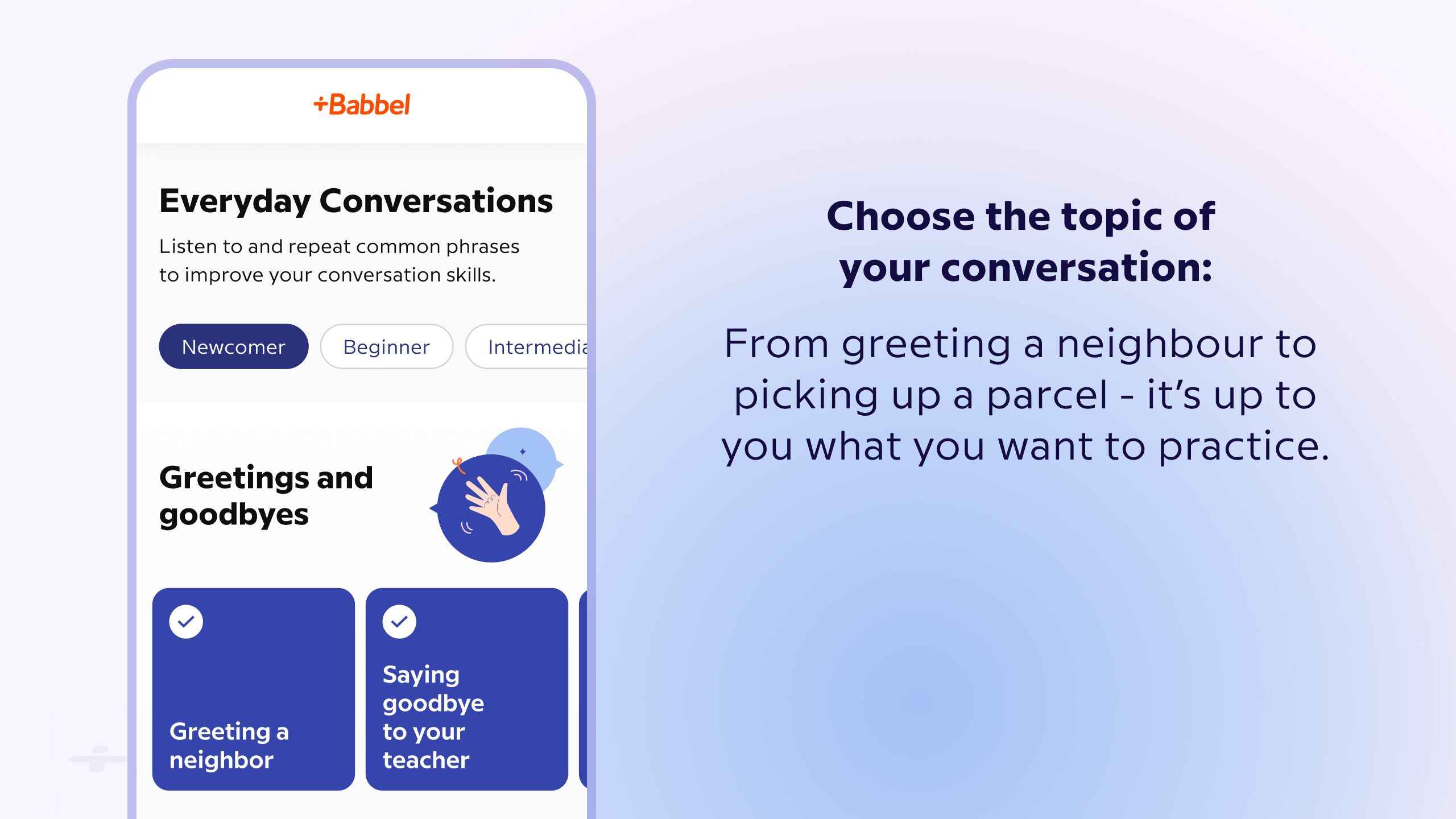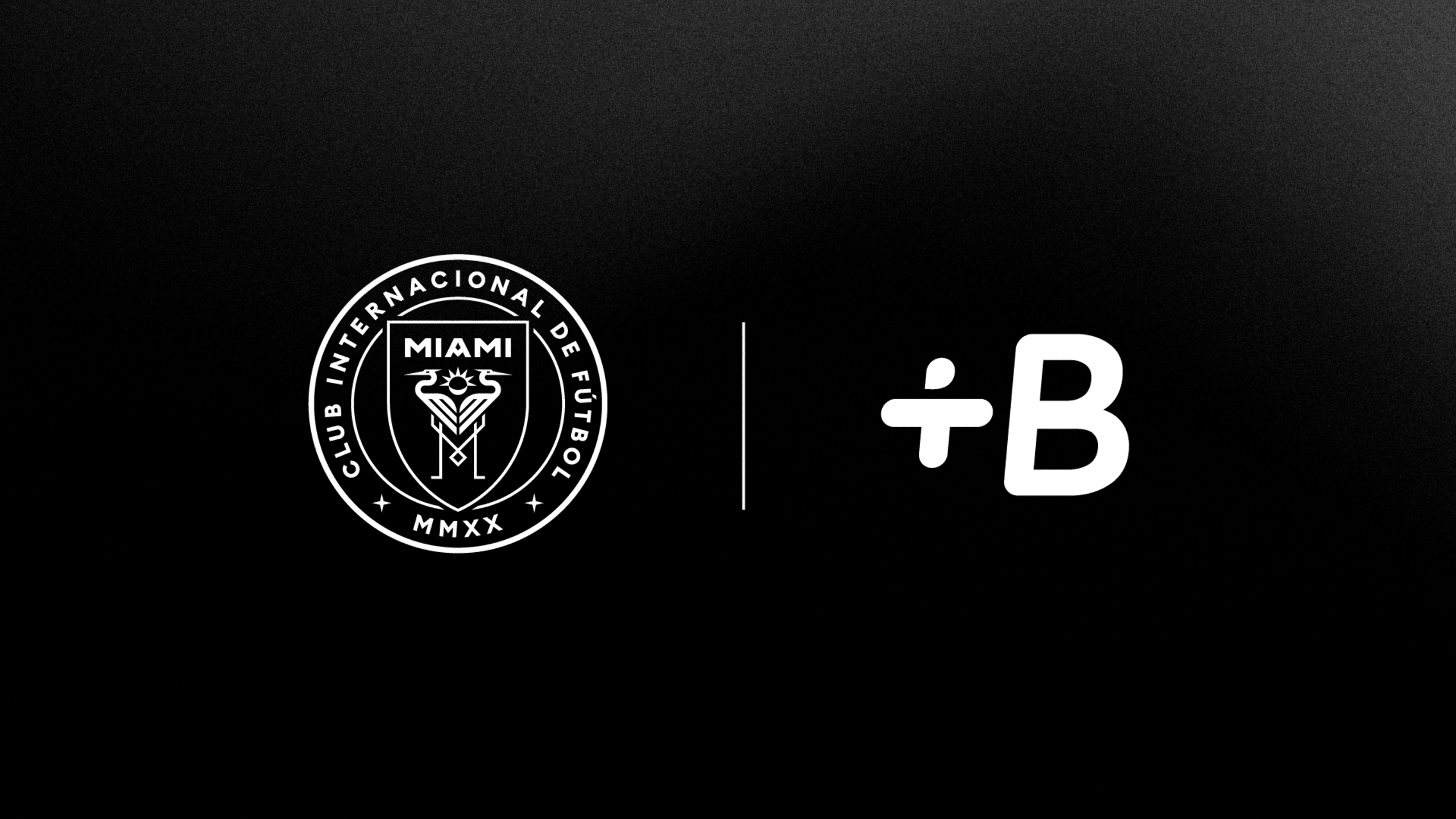
Learn with your own voice: Babbel launches two new speech-based features
Babbel adds ‘AI-Enhanced Speech Recognition’ and 'Everyday Conversations’ to its language learning platform to empower users to speak with confidence in real life
Babbel, the world's top-selling language learning platform, today unveils two new speech-based technologies - ‘AI-Enhanced Speech Recognition’ and 'Everyday Conversations’ - to develop the confidence levels and proficiency of its users in preparation for real life conversations. Integrated within the Babbel app, the new AI speech recognition tool provides users with valuable support during vocabulary-based lessons, including repetition exercises and tailored feedback to ensure pronunciation is correct. Babbel’s learners will also have the unique ability to independently practice dialogue in a safe space in a variety of preset social scenarios by using the new ‘Everyday Conversations’ feature.
Designed with learners in mind, especially beginners, Babbel’s new features will help them to speak with confidence and overcome the challenges of real life conversations. Its features will also support learners as they start to attend Babbel Live classes, and begin speaking a new language in day-to-day life.
AI-Enhanced Speech Recognition
Trained using millions of data points from Babbel’s own library of audio files, the new speech recognition feature is the most inclusive and advanced AI tool available to language learners. After granting permission, users can access the feature by tapping the orange microphone symbol and speaking directly into their device when prompted.
Babbel’s AI analyses and compares thousands of phoneme samples, to assess the accuracy of the speaker’s pronunciation. Developed in collaboration with Babbel’s expert team of linguists, the tool evaluates pronunciation based on a wide range of factors. The AI is trained on both correct and incorrect pronunciations, with different accents or dialects (e.g. Spanish from Argentina, Colombia or Spain), voice ranges (low and high), so that the model is also inclusive. Unlike other solutions, which are primarily programmed to understand users, Babbel's speech recognition is the first to be tailored specifically to the needs of language learners.
Everyday Conversations
Accessible via the Babbel app, ‘Everyday Conversations’ simulates short dialogues between speakers, enabling users to practice conversations that mimic real life scenarios to make learning more interactive. Users can choose from a selection of expertly crafted content covering everyday situations, such as ‘introducing yourself’, ‘talking to friends after work’, or ‘ordering food’. Offering another active learning resource to Babbel’s self-study app, the feature helps give learners the confidence to hold conversations by enhancing their verbal skills. "The vast majority of our learners are learning a language so they can have real conversations, not to read a book or score high on our app.” says Arne Schepker, CEO of Babbel. “Our new AI-enhanced speech recognition and Everyday Conversations features were designed with this in mind, addressing the crucial need to start authentic conversations. Increasing the number of real, heart-to-heart conversations around the globe can only be good for us as humans.”
"Every technology and every feature we create for our customers has to come back to one central thing, oral proficiency and the ability to master everyday conversations," adds Kathleen Radford, Chief Learning Experience Officer (CLxO) at Babbel. "To become proficient, it is essential to practice your own speech in the right environment. Through the introduction of new speech-based features, we are giving learners the right tools to speak with joy and confidence."
The speech recognition is available in the web app for five learning languages: English, French, German, Italian, Spanish (Castellano) and Latin American Spanish. It will soon be rolled out on iOS. The feature will be available to a wider audience in the upcoming months.
Everyday Conversations is currently available on Android and iOS for people learning English or Spanish (both European Spanish/Castellano and Latin American Spanish). November will see the addition of content for people learning French on both platforms.
About Babbel
Babbel develops and operates an ecosystem of interconnected online language learning experiences and is driven by the purpose of creating mutual understanding through language. This means building products that help people connect and communicate across cultures. The Babbel App, Babbel Live, Babbel Podcasts and Babbel for Business products focus on using a new language in the real world, in real situations, with real people. And it works: Studies by linguists from institutions such as Michigan State University, Yale University and the City University of New York demonstrated the efficacy of Babbel’s language learning methods.
The key is a blend of humanity and technology. Babbel offers more than 60,000 lessons across 15 languages, hand-crafted by nearly 200 didactics experts, with user behaviors continuously analyzed to shape and tweak the learner experience. This results in constantly adapting, interactive content with live classes, games, podcasts and videos that make understanding a new language easy, from Spanish to Indonesian.
Because Babbel is for everyone, its team is as diverse as its content. From its headquarters in Berlin and its U.S. office in New York, 1000 people from more than 80 nationalities represent the backgrounds, characteristics and perspectives that make all humans unique. Babbel sold over 15 million subscriptions by creating a true connection with users.
More information: www.babbel.com


